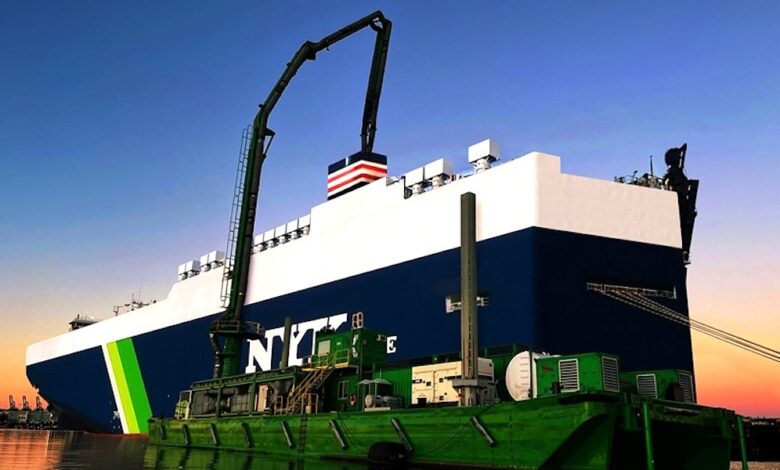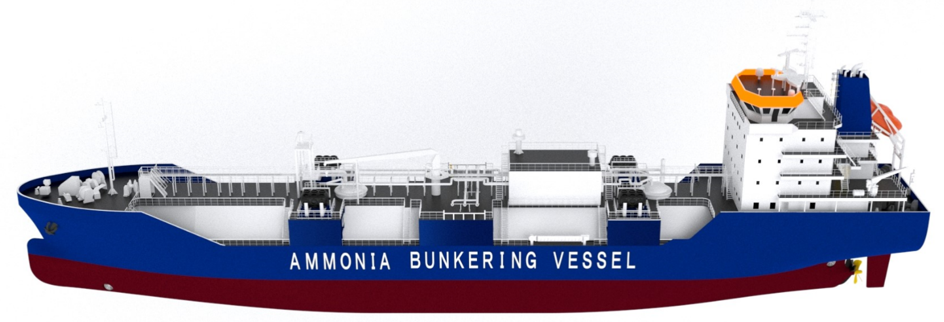Ajot: Air freight, buffeted by US tariffs, is losing business to ships
One result of the increases in U.S. tariffs on imports is that the air cargo industry is seeing some freight that previously went by air go instead on to ships, according to Joseph Smith, Director, Aviation Services for investment banker Cassel Salpeter & Co, based in Miami, Florida.
In an interview with AJOT, Smith said: “there’s a lot of goods coming from Asia that I think might have in the past been utilizing cheap air freight that now if you can get your supply chain where you can handle 21 days or 28 days or 15 days (by ship) instead of the three to five (by air) … it may take time for companies to be able … to navigate that.”Smith noted that the International Air Transport Association (IATA) downgraded its 2025 guidance for air cargo demand from its 5.8% growth forecast, issued December 2024, to a revised forecast of near-zero growth for the year.
Two of the biggest US air cargo carriers are UPS and FedEx, Smith said: “So what we’ve seen is a lot of the carriers …whether it be a UPS … and some of the bigger freight carriers, we have seen them significantly … redeploy their routes to other markets.”
Smith told AJOT that the air transport industry supported a total of 86.5 million jobs globally in 2023, including direct, indirect, induced and aviation-enabled tourism jobs.
While air transport carries less than 1% of the volume of world trade
shipments, it represents around 33% by value – meaning that goods shipped by air are very high value commodities and often perishable or time-sensitive.
Determining de minimis impact
On August 13, 2025, a report “ State of Air Cargo: Elimination of De Minimis Exception and Increased Tariffs Send Air Cargo Volumes Plummeting” authored by Marina Mayer, Editor-in-Chief of Supply & Demand Chain Executive, warned:
“Air cargo volumes in the United States through May have declined approximately 25%, year-over-year, per estimates from freight forwarders and customs brokers. The decline has accelerated since May 2, when the de minimis exemption ended for goods from China. Since the Trump administration announced reciprocal tariffs in April, China-U.S. cargo volumes have dropped by up to 60%. Tariffs have severely impacted e-commerce bookings, which fell approximately 50% in May 2025.”
The report added that some Chinese importers that utilized air freight are already starting to ship goods by ship: “The elimination of the $800 de minimis exception for imported goods, combined with increased tariffs, is expected to send air cargo volumes plummeting for low-value e-commerce shipments. With de minimis exemptions unlikely to return, Chinese e-commerce leaders now send products into the United States via bulk sea freight shipments to US-based warehouses and distribution centers, abandoning their use of individual air shipments for direct-to-consumer fulfilment that previously drove cargo aviation growth.”
The $800 de minimis rule allowed goods valued at or below $800 to be imported into the US without incurring duties, taxes, or formal customs entry procedures.
The analysis also noted: “The daily number of trans-Pacific air freighters arriving at the Top 18 US airports has decreased by approximately 30% since April, according to Cirrus Global Advisors.”
Key takeaways
Other key takeaways from the report were:
- The implications of new trade policies are concerning and include declining demand for freighter aircraft and fleet expansion. This may be amplified by a downturn in freighter conversions, driven by rising component costs and procurement delays. Dedicated freighters increasingly dominate global trade volume over passenger aircraft belly cargo; volatility in the freighter market can drive significant systemic impacts.
- Air freight operators might take proactive measures to mitigate tariff impacts by relocating or onshoring some of their operations and adopting hybrid models that combine direct air fulfillment with pre-stocked forward warehouses in key markets. This approach has the potential to establish new partnerships with countries that can reach negotiated settlements and reduced tariffs, which could diversify existing freight routes and generate additional business for air freight carriers.
- US-based cargo airlines are actively seeking ways to offset higher import costs. Lower fuel prices can provide relief if demand remains stable, while rising jet fuel prices allow airlines to implement fuel surcharges that typically include profits above actual costs.
- Another cost-reduction opportunity involves consolidating air and ocean shipments under single customs entries, potentially reducing customs brokerage and government processing fees per shipment.
- Current forecasts suggest the air cargo market could experience a continued downturn in the second half of the year due to the persistence of new U.S.-imposed tariffs and potential retaliatory measures taken by other countries.
- The impact of new U.S. tariff policy will extend far beyond immediate cost pressures; new trade policy aims to transform international trade and recast global trade routes. As a result, the tariffs have been particularly destabilizing to the airfreight industry, driving price volatility and forcing comprehensive route planning overhauls, particularly within the e-commerce sector.
- The air cargo sector faces major headwinds within this evolving tariff environment. Cargo airlines must navigate an increasingly complex landscape of disrupted trade flows as manufacturers and retailers reconfigure supply chains in response to new levies. This will reshape network planning, capacity deployment, and aircraft acquisition strategies as carriers adapt to altered trade routes and cargo volumes.
Related Posts





